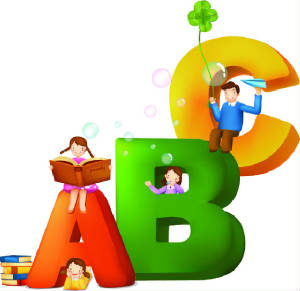|
Pediatric Neuropsychologist Ernest J. Bordini, Ph.D. |
|
|
|
Ernest J. Bordini, Ph.D. , Licensed Psychologist More than 30 years experience in providing pediatric neuropsychological evaluations to the Florida community
and beyond. Clinical Psychology Associates of North Central Florida Main office Gainesville
Florida: 2121 NW 40th Terr. Ste B, Gainesville, FL 32605 Ocala Office: 3620 NE 8th Place, Ste 3, Ocala FL 34470 Phone:
(352) 336-2888
Fax: 352-377-1056 |
|||
|
What is a pediatric neuropsychologist? A pediatric neuropsychologist, in most states, must be a licensed psychologist. Neuropsychologists
have doctoral degrees in clinical psychology or neuropsychology and may have minor or major concentration or subspecialty
formal graduate edication, and have supervised training in neuropsychology and pediatric neuropsychology in doctoral, internship,
and post-doctoral levels. Pediagric neuropsychologist's extensive training and supervised experience usually involves normal
and abnormal brain anatomy, child development, study of brain diseases and dysfunction, and extensive training in using psychological
tests to assess brain functioning. Most psychology licensing boards require a year of internship,
which may be pre-doctoral as well as one year of supervised residency. Modern definitions of a neuropsychologist now usually
require graduate level training and supervision and two years of supervised post-doctoral experience. A psychologist should not hold themselves out as a neuropsychologist with graduate
training and supervision in the field. It is generally recognized that taking continuing education courses after licensure
is not sufficient. In most states, calling an assessment a psychological assessment or neuropsychological assessment
is limited to licensed psychologists. Sometimes unlicensed providers or individuals who may not be specifically trained as
rigorously as neuropsychologists may call their assessment reports by other names. Pediatric neuropsychology is a field of study involving the relationship of abilities, behavior, attention, language, visusopatial, memory, intelligence,
motor, and sesnory perceptual abilities in children. Clinical, pediatric neuropsychology (neuropsych) involves the application
of this field to the diagnostic assessment and clinical treatment of normal and abnormal child developmental, medical, psychiatric,
and neurological conditions or problems. The field shares a knowledge base with other professions such as pediatric neurology. A child or pediatric neuropsychologist may work or consult with pediatricians, pediatric
specialists in behavioral neurology, developmental pediatricians, child psychiatrists, occupational therapists and speech
and language therapists.  Pediatric or child neuropsychologists have training and experience in applying neuropsychological assessment or treatment techniques to children. Since children mature, they are faced with varying age-specific challenges in terms of their academic and social development. Far more than a simple downward extension of adult neuropsychology, the pediatric neuropsychology involves an understanding of normal and abnormal child development and learning, developmental motor skills, and language disorders as well as diseases associated with children. Pediatric
or child neuropsychologists commonly assess children for problems such as Attention-deficit Hyperactivity Disorder (ADHD), Autism Spectrum Disorders (ASD), brain injuries, cerebral palsy, intellectual disorders, learning disorders such as dyslexia or math difficulties, and disorders of language. Evaluations aasses coordination
difficulties, sensory-motor integration difficuoties, reasoning, impulse control, and executive functions and also examine
mood, psychiatric, and psychosical disorders and contributors. Evaluations
are often more detailed than simply involving ability assessment and assumptions are made about brain-behavior relationships.
Pediatric neuropsychological assessments are aso performed to evaluate neurological conditions such as effects of a tumor, anoxia, hydrocephalus,
birth complications, or toxic exposures. Assessment can also involve neurocognitive or other neurodevelopmental difficulties
associated with epilepsy, kidney disease, and other medical conditions. Problems may involve subtle or not so subtle deficits.
Neuropsychologists trained in medical settings such as hospitals often have more supervised training and experience in assessing
these and rarer conditions. Pediatric neuropsychological evaluatoins are also often performed for pre-surgical and post-surgical
neurological interventions for control of epilepsy or brain tumors. Since children's skills go through periods of rapid change, and they are faced with increasing cognitive and
academic demands with each passing year, there is often a need to conduct periodic re-assessments. Some conditions may not
impact until later years, such as when facing the multi-tasking demands of middle school, or the increased volume of work
and writing demands of high school. Results of pediatric or
child neuropsychology assessments may be used to assist in diagnosis, to assist with educational placement or remediation,
clinical treatment planning, rehabilitation, formulating accommodations, disability determinations, determing the effects
of medication or surgery, or in rarer cases in matters involving criminal responsibility or criminal competency. Applications of neuropsychological assessment to legal proceedings or determinations is termed forensic neuropsychology.  When choosing a clinic or neuropsychologist to
conduct a neuropsychological evaluation on your child, it is wise to ensure the individual providing or supervising the services
is a licensed psychologist with training involving both neuropsychological assessment and with children and adolescents. Dr. Bordini earned his Ph.D. in Clincial and Health Psychology
from the University of Florida with a minor in neuropsychology. He completed graduate training and had graduate supervised
practicum experiences in child neuropsycholgy, adult neuropsychology, and medical psychology in clinics at Shands UF and North
Florida Evaluation and Treatment Center. Dr. Bordini had internship rotations in psychiatry, mental health, additions, neurology
and forensic psychology during his internship at the VAMC in Gainesville, and further experience in pediatric neuropsychological
experience during his post-doctoral training and later pediatric neuropsychology practice at Grant Center Hospitla and Charter
Hospital pediatic units or hospitals. Pediatric neuropsychology was a developing field then. Dr.
Bordini is one of few pediatric neuropsycholgists in Florida who has 30 years of experience. He was the first president of
the Florida Psychological Association Neuropsychology Interest Division. He was awarded the Molly Harrower Award for diagnostic
excellence. FOR ADDITIONAL INFORMATION Brain Injury in Children and Adolescents Concussion and Head Injury Classifications Neuropsychological Assessment Forensic Neuropsychology Child and Adolescent Services Coping with Major Medical Illness Articles and Archives  = CALL: (352)-336-2888 E-MAIL info@cpancf.com Visit our NeuropsychologyCentral metasite |
Ernest J. Bordini, Ph.D., Executive Director Licensed Psychologist More than 30 years of experience in Adult and Pediatric Clinical and Forensic Neuropsychology Named a Distinguished Psychologist by the Florida
Psychological Association  |
||
|
Clinical Psychology Associates of North Central Florida Pediatric Neuropsychological Assessment is often critical in assessing the abilities and impairments of childhood
traumatic brain injury or children who have suffered anoxia or childhood brain tumors or cancer. Parent interviews and
questionnares are usually necessary, and in many cases school and medical records are reviewed. Teacher ratings are also frequently
requested. |
|||